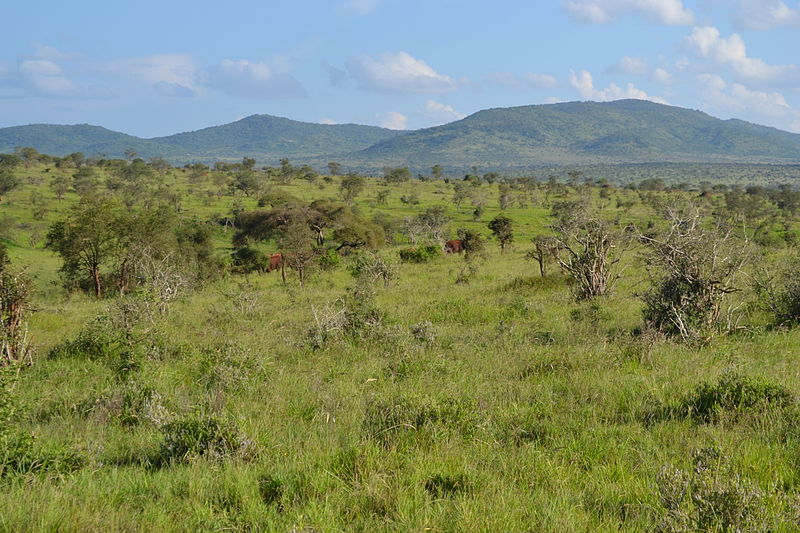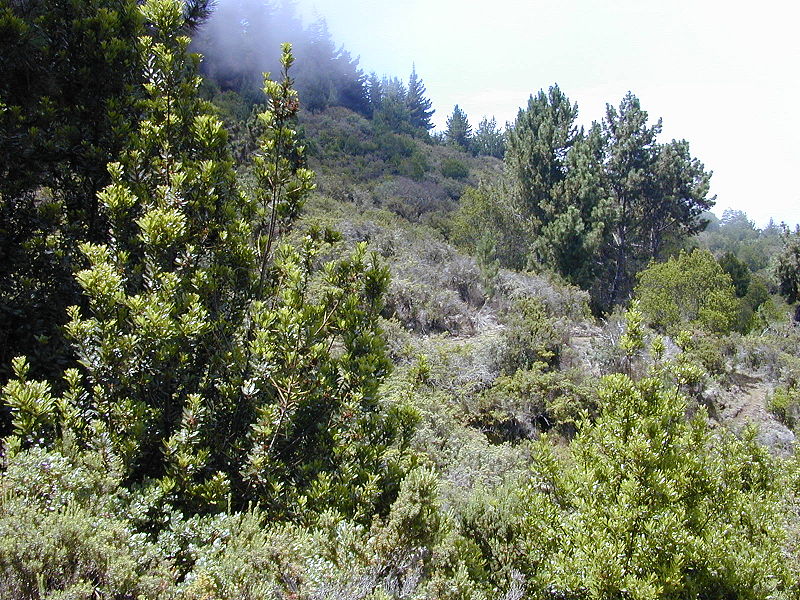Behold the city, millions of souls strong, all of varying sizes and shapes! The site where ten thousand cultures and ethnicities dropped themselves off for a sleepover and stayed forever, bickering and embracing their neighbours and watching their children grow up. A hotbed of humanity that put any greenhouse to shame, a beehive with more frequent sex, an anthill that needed no queens. A billion mouths opening every second, talking, trading, pouring waves of sounds and information over one another, evolving constantly and using a trillion words from every language you could name.
A trillion and one, now. And that was the problem.
I nodded to Finneas Fabian as he picked his way over the broken glass of the study. “Professor. Glad you could spare a moment of your time.”
“I have it in plenty,” he muttered. Already peering at the walls, examining the hundreds of incredibly outdated packages of information stashed away behind sheet glass, safe from mildew. “And I’d say this takes precedence over any of my research, Inspector.”
“I more meant the Linguistic Singularity. Only every five years for a week, be a shame for you to miss –“ I pulled up short because I was being fixed with a glare that could’ve melted steel. For someone with eyes that watery, the professor could focus them until they gave you sunstroke.
“The Singularity,” he stressed, “of which we have had more than sixty, is hardly singular. It is also notably lacking in novelty. I will not be missed or looked for, and I hadn’t intended to go at all. They are not interested in my field, and I return the feeling tenfold.”
“Right, right, right,” I said, holding up my hands. “I get it. Forget I said a thing. You want to see the evidence now?”
Fineas relaxed, if only a little. He was a short, round little man, but his spine seemed to uncurve when he got angry, expanding him upwards like a vertical pufferfish. “Yes. Yes of course. Show me.”
There wasn’t much to show. A chalk outline, where the body of Sir Agnes Gabbley had been taken away. And a huge outdated monitor, the screen nearly a full foot across, monstrous compared to the sleek modern puter hooked into it, its case an inch across.
The screen’s monstrous width was even more pointless than it had been since the invention of the ICU. Only a single thing remained visible on it: a smudge of writing on a word processor.
“Prehistoric,” I said. “No idea why she didn’t just pop in an ICU – it’s not like her affection for old tech made her use these, uh, books any often. Lab sweep said the cases haven’t been opened for thirty years, and that was just to put them away.”
“I-C-U,” said Finneas absently, as he peered at the screen. “Eye-See-You. An initialism for a small screen placed across the surface of the eye, usually the right eye this side of the Atlantic. Very pleasing phrase, formed with punster’s heart. No. I am allergic to them. Put any electronics that close to my eyes and they give me seizures. I suspect Agnes shared my condition. Not uncommon. Point four percent of all humans.”
“Thought you were the Professor of Obscure and Forgotten words here, Finneas. Isn’t that a bit modern for your tastes?”
“I think better when I talk. A bit of a curse, you know.” He pointed his finger at the screen. “Don’t worry, Inspector. This… this I recognize.”
“Great. What’s it mean?”
“LAN.” The word came out without force, almost carelessly, cushioned. “A full-blown acronym, Local Area Network. Twentiesh century. Hasn’t been used in, oh, a few hundred years.”
“Brainlog says it’s the last thing she did. Sat down, mucked around with work and such, sent a letter to her brother-in-law-“
“Anything interesting?”
“It was about bonsai gardening.”
“Oh.”
“And then she pulled up another letter, wrote, uh, ‘LAN,’ and drops dead. Shock, right?”
Finneas pursed his lips. “Definitely. A word that old can be a bit of a surprise, dropping right onto your tongue – err, so to speak. And Sir Agnes was elderly and had a bit of a congenital heart defect. That’s the problem with nobility; too much inbreeding leads to all sorts of nonsense.”
“Professor, someone is dead.”
“Yes. Yes they are. And if we don’t do something fast, they won’t be the only one.”
“What?”
“The word won’t stay put. It’s mobile now – I’d say it escaped from someone’s private collection. Can you get your men to check on every linguist or dabbler of words in the city who keeps any sort of data on twentieth-twenty-first-century language?”
I made the call, and I winced a little inside. A lot of the names that were scrolling across my ICU were important with a capital Self, and wouldn’t take kindly to an emergency property search. This could have fallout. Hell, this could have half my career path glowing in the dark. But like I’d just told the professor: someone is dead.
“Good. Now, while that’s underway, find me the location of the next crime scene.”
I checked my messages. “How’d you know?”
“A guess. Where is it?”
“Coco Café. Downtown.”
Coco Café was a lovely building, even surrounded by big swaths of alarmingly-coloured police tape. Real nice walls, early twentieth-century stuff renovated only a few times, cared for with love. Even the paramedics rounding up the gurgling, twitching stroke victims seemed to be admiring the view.
“I will need a compilation of their ICU’s displays at the time of event, please,” the professor had asked. “Hardcopy.”
“I’m sorry?”
“Put it on a piece of paper or something or transfer it to a monitor. I need to read this.”
Now, twenty minutes after thirty amateur novelists had screamed and dropped their morning coffees all at once, here it was. Five pages of dead tree, single-spaced even with my bad handwriting. Contents: a bit of porn, but mostly dictionaries, thesauri, and grammar guides.
And the last page. The last page was just one word, on each ICU:
lol
I blinked at it. “What the hell does this even mean?”
“It’s an initialism.” Finneas was sweating now, sweating in the coolness of the September evening. “El-oh-el. Laughing Out Loud. Originated as a descriptive phrase, became a quick way to express amused and happy emotions in a text-only medium. Again, early twentiesh century. Inspector, can you get your men to search faster? Have they found anything, anything at all? A hint?”
I checked. “No. Most of them just got permission to search, and one team hasn’t even gotten the guy to answer the door yet. What’s the hurry? It took this thing three hours to jump from Agnes to the Coco.”
“Yes, but it’s not the same word,” he said. “There’s a link, but it’s not the same word at all. Same era, same area of prevalence in dialogue, but nowhere near the same meaning. Inspector, we are dealing with a reigning word.”
“A what?”
“You know about bees, Inspector?”
“What?”
“Apologies. Ants?”
“Sure.”
“This is a Queen word we are hunting. So far we have only found her children, left behind in the wake of her passage. She could have a handful, Inspector, or she could have dozens. Or a hundred. Have your men found anything?”
I checked again. “No.”
Finneas shut his eyes. “Oh dear.”
I blinked, and the ICU changed. “Get in the car.”
City Councillor was one of those positions that depended entirely on the person holding it. You could change the lives of a hundred million people, or you could take lunch breaks and read novels during meetings. Councillor Brevish had opted for the simpler option.
We got there before the emergency response this time. It made accessing the ICU a bit difficult. Well, finding it anyways.
“Aren’t you going to help?” I asked Finneas.
The professor had turned an unusually green shade of brown. “I’m sorry?”
“Professor, a cutting-edge ICU is the size of a fingernail. A LITTLE fingernail. And it’s somewhere inside, oh, call it eleven pounds of pulverized meat and bone, spread over three square meters of floor and wall. Any help would be appreciated.”
“I understand that there are forensic sweeps-“
“Don’t have one. I haven’t had the time to upgrade in six months. On your knees, Professor.”
To his credit, Finneas did as I asked, and without even throwing up, although his hands shook an awful lot. Within four minutes the cleanup crew was there and I was running a search through the blood-and-brain-stained ICU of Councillor Herman Brevish.
“What does this degree of response tell you, Professor?”
Finneas looked up from the corner he’d slumped in. His hands were still shaking. “What?”
“The head exploding.”
He turned a bit green again. “Massive force. He must’ve been neglecting it. We put out warnings and instructions on proper care every week, Inspector, but there’s always some fool that doesn’t listen, that wants to keep some multisyllabic gargantua in their attic and check up on it only when they want to show off their vocabulary to guests.” He shook his head, the anger overcoming the nausea. “You cannot do that. It simply doesn’t work. Pen up something big like that and the pressure just…builds. And builds. And then it.-“
“Explodes?” I asked. The search was running slowly. Brevish’s files were a mess; something had rampaged through their guts and thrown them willy-nilly.
He looked at his shoes. “I was going to say escapes. But yes. Sometimes it is violent.”
“So this is expected?” There we go, clarity was emerging. I’d had to practically rebuild the whole damned thing.
“NO!” he shouted. “No it damned well isn’t and I’d thank you to stop reminding me that I spent any amount of time picking through a human being’s grey matter, thank you very much! At most you get cerebral hemorrhaging, perhaps if milder a concussion! This is…unheard of. God knows only what sort of monstrosity this moron was keeping cooped up in here. But it’s escaped and now who knows where it’s off to. Are you listening to me Inspector? We are facing a worst-case scenario here!”
I blinked.
“Inspector, would you please look at me?”
I blinked. My ICU didn’t change. Still stalled. Still dead still.
And right in the center, a word.
(Of course it would’ve come home to hide)
A word with a thousand words on it, crawling with them, dangling off its sides, a concept made of concepts coated with concepts concepts concepts concepts concepts
I woke up and rolled to the side, head aching from where the floor had made contact, eye a blazing pain of soon-to-be-swollen flesh, fists ready to strike back at whoever’d socked me.
Finneas was wincing and rubbing his hand. “Are you alright?”
I remembered, and relaxed. “Barely. Thank you. Head hurts. Do you have my ICU?”
He pointed at the floor where a white-hot puddle of metal and plastics was quietly spitting to itself and ruining three-hundred-year-old marble.
“Needed the excuse to upgrade anyways.”
“Do you remember anything? Anything at all? Inspector, did you see what we’re hunting?”
I thought fast, because the headache was cruising in over the horizon, fast and furious, ready to turn conscious thought into a thing of short sharp peaks and deep, aching valleys. “Yeah. Yeah, I saw it.”
“What was it?”
I frowned. A nonsense word. “Internet.”
The emergency team had brought along a spare ICU. Kindly of them, although using it in the left eye American-style made my head hurt – well, everything made my head hurt.
Finneas hadn’t stopped pacing and muttering since I’d spoken to him.
“Professor,” I said.
He stopped.
“We need to know what this thing is, and where it’s going next.”
“Right. Right. Of course.” He ran his hands through his hair. “I’m trying to think, you see. Inspector, you just came face to face with the word for, well, ah, hmm, well, uhm. You know, it’s sort of hard to explain. I imagine fish have a similar problem describing water.”
“Tell me.”
He pointed at my ICU, and at the bloodstained puter on the Councillor’s desk. “The…linking mechanism between these machines. Between all machines. The ability they have to communicate over distances.”
“That’s what this thing is?”
“Of a sort. That is a rough description of what the internet was. Is. Was.” He ran his fingers through what hair he had left – was it thinner now than it had been at the night’s beginning? “The term lasted from the late twentieth century up until, oh, about a hundred sixty years later. Past that, well, why bother? It’s too ingrained to describe.”
“And what makes this word so…loaded?”
“Because it in itself contains almost every single odd-end and discarded concept, meme, and thought formation that existed during the period of its conception!” said Finneas. “It’s a damned linguistic dragon, a conceptual giant! You look at it and you look at an entire series of dialects, all overlapping, all cobbled-together on the crudest levels! It’s like wringing your brain through a kaleidoscope! And that damned dolt Brevish kept it cooped up like a spelling-bee prize.”
“Halfway there, Professor. Where’s it headed.”
“Well, for the biggest target where it can feel safe,” he said. “Somewhere it can get lost in the noise. It won’t help it, of course, poor monster. It’ll tear apart its own cover just by using it, like a brushfire trying to hide under a single blade of grass.” His face went blank.. “A single blade of grass. Single single oh no no no.”
I was already running to the car.
The Linguistic Singularity could’ve been hosted anywhere. It could’ve been held in any one of its attendee’s studies, on a puter somewhere on the moon, inside Oxford… and all without a single person having to budge from their homes.
Thankfully, the convention’s guests were just stodgy and old-fashioned enough to want a big, physical get-together. This made following the screaming much easier.
The doors were wood; an ancient luxury. My boot was steel; a modern convenience. It was an easy contest.
What a damned sad, horrible sight. Dozens of them, writhing in the aisles between display racks of ancient books, of carefully-preserved hard drives.
“Get their ICUs out!” I yelled to the crew behind me. “And whatever you do, don’t read anything!”
I ran to the side of my first victim: steel-haired, iron-spined lady, foaming at the mouth. I put my finger and thumb to the corners of her eye socket and PUSHED.
Nothing. Damnit, must be wearing hers American-style. I tried the other socket.
Nothing.
I looked closer. The eye was blank with mindless terror, but also empty. Physically empty. “FINNEAS!”
The professor was staring around him in total horror, trailing in the wake of the emergency response squad. Whatever tough line he’d talked about his colleagues before, I doubted he’d have wished this on them. “What? What?!”
“Where’re their fucking ICUs?!”
He twitched under the swear. “Reg. Regulations! They changed them ah, uh, three – two years ago! Naked eye only! Purists, stupid purists did it!”
“Then where are they getting the damned seizures from?!”
A short, sharp yell of panic and total existential terror came over my ICU link, then a thud. Man down, Jean Chang was down. He was on the second level, above us.
Above us, dangling on a tether thicker than a human torso from the sky-high ceiling of the hall, was a monitor, a screen. Magnificently obsolete, a titan of the old ages, measuring more than fifty years across. I could practically feel the static of its power from underneath it.
A thousand tiny lines of text were streaming across its face.
I averted my eyes hurriedly as I strapped my handgun to my palm, never being so thankful as now that I was a slow reader. Power source: built into the frame. Had to get up twenty feet and inside a titanium casing. The staircase seemed to turn to molasses under my feet as I ran up it, adrenaline turning my ears into ocean-roars, sounds from the insides of seashells.
It was a ten-foot gap, and over a railing? Could I make it? The question didn’t enter my head until I was in midair, which was perfectly fine because the answer was yes. At least for my fingertips.
I dangled there, underneath the belly of the beast. And that was close enough for me to reach up and twitch the trigger on my handgun, sending a gratuitous amount of volts straight through the metal of the monster’s base and into a coiled serpent’s nest of delicate wiring.
Smoke filled my mouth. I cough, spat down, nearly hit Finneas. “Is it cooked?!”
He glanced up, froze, and started foaming at the mouth. The professor froze for a split second, then ran to his side.
“Shit!”
I glared up at the monitor above me. Of course it wasn’t using the old power source; the thing was a century out of date, maybe two. They would be passing the current through the air straight into the screens: no muss, no fuss, no worry of staining ancient, precious wiring. No way to block it, no way to stop it.
Fine. Old-fashioned it was then.
I’m no jock, never have been. And it was the happiest day of my life when I got promoted to a (mostly) desk job. Paperwork was a chore, not a curse. And I never cursed these parts of myself as much as I did then, as I hauled myself up and up over the face of twenty-seven feet of sheer-faced screen, ripping what handholds I could with boot and nail.
Words leaked in. I kept my mind on my job and my eyes on my hands, not on what they clutched, but words leaked in. So many words.
lol lmao lmfao lolcats lolcatz lulz brb wtf
Acronyms, right? Finneas called them initialisms. Don’t pay attention to them, you’ll just attract the big one…
Climbing faster now, eyes moving quicker, but so’s the brain, and it’s picking up more and more and more raptor jesus first-world problems at first I was and then I lol’d rofl roflmao LAN browser Google Google Google Yahoo anyonymous blog blogger
I shook my head – shaking my whole body in the process – and nearly slid away as my fingers clamped onto solid metal again. So much empty space beneath me. Empty and filled with words like omg omg gtfo gtfo qq moar GTFO
I raised my hand, gripped the base of the cable, flicked the grip of my handgun to heat.
And there it was, right in front of my eyes, a thousand words suckling at its belly, half-formed. The internet.
It looked back at me, straight into my hindbrain.
wtf pwnt wut
And I’d love to say that I had a one-liner ready, even if it would’ve been wasted on a word, on a nonsapient linguistic concept. But I’ll be honest: when your entire body stiffens up in unconscious dread-induced paralysis, your hand clenches. And mine clenched at many, many thousands of degrees Celsius, taking about half of the cable with it.
The rest met gravity, and embraced it. And that was all for me for about a week.
Rough job. I got a promotion, though. New title, new ICU, new hand (new forearm, nearly). New hookup, too, if Finneas’ll get off his ass long enough to phone me back.
And a new vocabulary. But he’s advised me to try to keep that under wraps. I’m inclined to agree.








